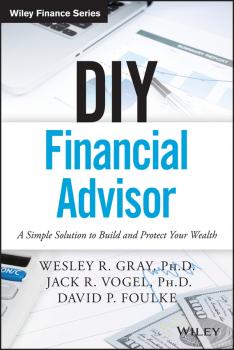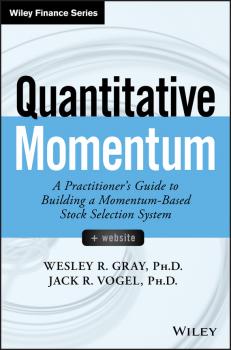Wesley R. Gray
Список книг автора Wesley R. GrayEmbedded
In 2006, 1st Lt. Wesley Gray was deployed as a U.S. Marine Corps military adviser to an Iraqi Army battalion in the Haditha Triad. For 210 days, he lived and fought beside Iraqi soldiers in the most dangerous and austere province of western Iraq. Al-Anbar was filled with an insurgent population traumatized by a recent massacre of twenty-four men, women, and children shot at close range by U.S. Marines in retaliation for the death of one of their comrades in a roadside bombing. Despite the high tensions created by the shootings, Gray was able to form a bond with the Iraqis because he had an edge that very few U.S. service members possess -the ability to communicate in Iraqi Arabic. His language skills and his understanding of the culture led the Iraqi soldiers to call him a brother and fondly name him Jamal. By the end of his tour he was a legend within the Iraqi Army. Gray draws on the brutally honest and detailed record he kept during his tour, including extensive interviews with Iraqi soldiers and citizens. He offers a comprehensive portrait of the struggles of the Iraqi people to make their country a nation once again and includes a compelling report on the status and prospects of the U.S. government's strategy for success in Iraq.
DIY Financial Advisor. A Simple Solution to Build and Protect Your Wealth
DIY Financial Advisor: A Simple Solution to Build and Protect Your Wealth DIY Financial Advisor is a synopsis of our research findings developed while serving as a consultant and asset manager for family offices. By way of background, a family office is a company, or group of people, who manage the wealth a family has gained over generations. The term 'family office' has an element of cachet, and even mystique, because it is usually associated with the mega-wealthy. However, practically speaking, virtually any family that manages its investments—independent of the size of the investment pool—could be considered a family office. The difference is mainly semantic. DIY Financial Advisor outlines a step-by-step process through which investors can take control of their hard-earned wealth and manage their own family office. Our research indicates that what matters in investing are minimizing psychology traps and managing fees and taxes. These simple concepts apply to all families, not just the ultra-wealthy. But can—or should—we be managing our own wealth? Our natural inclination is to succumb to the challenge of portfolio management and let an 'expert' deal with the problem. For a variety of reasons we discuss in this book, we should resist the gut reaction to hire experts. We suggest that investors maintain direct control, or at least a thorough understanding, of how their hard-earned wealth is managed. Our book is meant to be an educational journey that slowly builds confidence in one's own ability to manage a portfolio. We end our book with a potential solution that could be applicable to a wide-variety of investors, from the ultra-high net worth to middle class individuals, all of whom are focused on similar goals of preserving and growing their capital over time. DIY Financial Advisor is a unique resource. This book is the only comprehensive guide to implementing simple quantitative models that can beat the experts. And it comes at the perfect time, as the investment industry is undergoing a significant shift due in part to the use of automated investment strategies that do not require a financial advisor's involvement. DIY Financial Advisor is an essential text that guides you in making your money work for you—not for someone else!
Quantitative Value. A Practitioner's Guide to Automating Intelligent Investment and Eliminating Behavioral Errors
A must-read book on the quantitative value investment strategy Warren Buffett and Ed Thorp represent two spectrums of investing: one value driven, one quantitative. Where they align is in their belief that the market is beatable. This book seeks to take the best aspects of value investing and quantitative investing as disciplines and apply them to a completely unique approach to stock selection. Such an approach has several advantages over pure value or pure quantitative investing. This new investing strategy framed by the book is known as quantitative value, a superior, market-beating method to investing in stocks. Quantitative Value provides practical insights into an investment strategy that links the fundamental value investing philosophy of Warren Buffett with the quantitative value approach of Ed Thorp. It skillfully combines the best of Buffett and Ed Thorp—weaving their investment philosophies into a winning, market-beating investment strategy. First book to outline quantitative value strategies as they are practiced by actual market practitioners of the discipline Melds the probabilities and statistics used by quants such as Ed Thorp with the fundamental approaches to value investing as practiced by Warren Buffett and other leading value investors A companion Website contains supplementary material that allows you to learn in a hands-on fashion long after closing the book If you're looking to make the most of your time in today's markets, look no further than Quantitative Value.
The 52-Week Low Formula. A Contrarian Strategy that Lowers Risk, Beats the Market, and Overcomes Human Emotion
A new but timeless strategy and mindset that should greatly help investors lower downside risk while achieving market outperformance In The 52-Week Low Formula: A Contrarian Strategy that Lowers Risk, Beats the Market, and Overcomes Human Emotion, wealth manager Luke L. Wiley, CFP examines the principles behind selecting the outstanding companies and great investment opportunities that are being overlooked. Along the way, Wiley offers a melding of the strategies used by such investment giants as Warren Buffett, Howard Marks, Michael Porter, Seth Klarman, and Pat Dorsey. His proven formula helps investors get the upper hand by identifying solid companies that are poised for growth but have fallen out of the spotlight. Shows you how to investigate companies and identify opportunities Includes detailed discussions of competitive advantage, purchase value, return on invested capital, and debt levels Presents several case studies to examine companies that have overcome obstacles by trading around their 52-week lows The 52-Week Low Formula is a must-read for investors and financial advisors who want to break through conventional strategies and avoid common mistakes.
Quantitative Momentum. A Practitioner's Guide to Building a Momentum-Based Stock Selection System
The individual investor's comprehensive guide to momentum investing Quantitative Momentum brings momentum investing out of Wall Street and into the hands of individual investors. In his last book, Quantitative Value, author Wes Gray brought systematic value strategy from the hedge funds to the masses; in this book, he does the same for momentum investing, the system that has been shown to beat the market and regularly enriches the coffers of Wall Street's most sophisticated investors. First, you'll learn what momentum investing is not: it's not 'growth' investing, nor is it an esoteric academic concept. You may have seen it used for asset allocation, but this book details the ways in which momentum stands on its own as a stock selection strategy, and gives you the expert insight you need to make it work for you. You'll dig into its behavioral psychology roots, and discover the key tactics that are bringing both institutional and individual investors flocking into the momentum fold. Systematic investment strategies always seem to look good on paper, but many fall down in practice. Momentum investing is one of the few systematic strategies with legs, withstanding the test of time and the rigor of academic investigation. This book provides invaluable guidance on constructing your own momentum strategy from the ground up. Learn what momentum is and is not Discover how momentum can beat the market Take momentum beyond asset allocation into stock selection Access the tools that ease DIY implementation The large Wall Street hedge funds tend to portray themselves as the sophisticated elite, but momentum investing allows you to 'borrow' one of their top strategies to enrich your own portfolio. Quantitative Momentum is the individual investor's guide to boosting market success with a robust momentum strategy.




